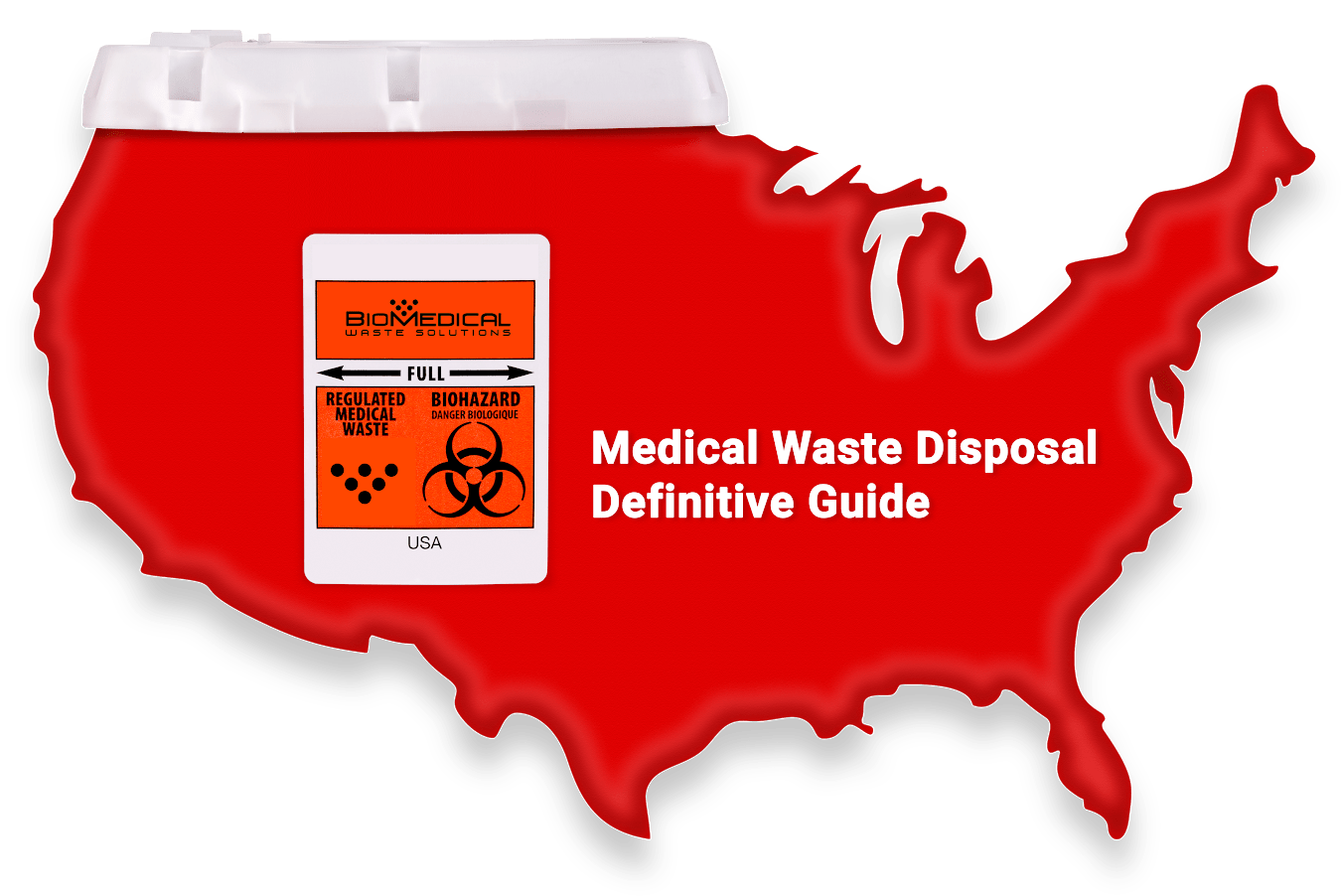Navigating Security: The Crucial Guide to Medical Waste Disposal Best Practices
Navigating Security: The Crucial Guide to Medical Waste Disposal Best Practices
Blog Article
The Relevance of Correct Waste Disposal Practices
From the repercussions of incorrect waste disposal on our atmosphere to the long-term ramifications for future generations, the relevance of embracing sustainable waste management techniques can not be overstated. By exploring the environmental influence of careless waste disposal, the benefits of reusing efforts, and the relevance of community involvement in waste decrease efforts, a much deeper understanding of why proper waste disposal methods are essential emerges.
Environmental Influence of Improper Disposal
Incorrect disposal of waste presents a considerable hazard to the environment as a result of its harmful results on communities and human wellness. When waste is not correctly handled, it can cause pollution of the air, water, and soil, creating harm to numerous plant and animal types. click here. Chemicals and contaminants from improperly disposed waste can leak right into the ground, infecting groundwater resources and influencing the health of both wildlife and humans
Additionally, the accumulation of waste in garbage dumps creates greenhouse gases like methane, adding to environment modification and worldwide warming. Incorrect disposal methods likewise cause littering, which not just degrades the visual worth of the setting yet can additionally hurt wildlife with ingestion or entanglement.
To mitigate these ecological influences, it is critical for people and areas to adopt correct garbage disposal methods such as reusing, composting, and accountable dangerous waste disposal. By taking these steps, we can aid shield ecosystems, maintain natural deposits, and safeguard human health for existing and future generations.
Advantages of Recycling Programs
Consistently taking part in reusing programs uses various advantages for both the setting and culture as a whole. One of the vital advantages of recycling is the preservation of natural deposits. By reusing materials such as paper, metal, glass, and plastic, less raw products require to be drawn out from the earth, bring about minimized deforestation, mining, and boring activities. This conservation of sources not just assists in preserving environmental equilibrium yet also adds to sustainable advancement.
Additionally, reusing plays an essential duty in decreasing power intake and greenhouse gas emissions. The manufacturing of items from recycled materials typically calls for much less energy compared to making from virgin sources - medical waste disposal. As a result, the carbon footprint connected with the manufacturing procedure is considerably reduced, assisting in the battle versus climate change
Additionally, recycling programs produce work possibilities in the reusing industry, promoting economic growth and social welfare. By motivating the recycling and reuse of materials, these programs sustain a round economic situation that minimizes waste generation and optimizes source performance, ultimately leading to a cleaner, greener future for generations to come.
Hazardous Waste Administration Standards
Carrying out efficient contaminated materials monitoring standards is essential for lessening ecological and wellness threats related to the inappropriate disposal of unsafe products - click here. Correct handling, therapy, and disposal of hazardous waste are necessary to protect against contamination of dirt, water resources, and air
One trick standard appertains labeling of contaminated materials containers to guarantee risk-free handling and transportation. Furthermore, facilities should comply with stringent storage demands to stop leakages, spills, or mishaps that might threaten human health and wellness and the atmosphere. Normal training programs for employees on hazardous waste management methods are also important to make sure conformity with guidelines and advertise a society of security.
Moreover, dangerous waste ought to be segregated based upon its residential or commercial properties to avoid chemical reactions that can bring about hazardous circumstances. Executing a comprehensive waste monitoring system can aid check the activity of dangerous materials from generation to disposal, making certain openness and accountability. By complying with these standards vigilantly, companies and sectors can add to a more secure and cleaner environment for existing and future generations.
Area Involvement in Waste Decrease
To effectively attend to the ecological and health dangers associated with harmful waste management, engaging the area in waste reduction efforts is paramount. Neighborhood participation plays a vital duty in promoting lasting waste management methods and cultivating a culture of environmental duty. By educating locals concerning proper waste segregation, recycling, and composting strategies, communities can considerably minimize the quantity of waste sent to landfills, consequently minimizing environmental contamination and saving all-natural sources.
Community involvement in waste decrease programs additionally aids in raising understanding regarding the importance of waste minimization and motivates people to take on environmentally friendly behaviors in their daily lives - medical waste removal service. Collective initiatives in between regional authorities, waste administration business, and area members can lead to the implementation of reliable waste decrease approaches customized to the details demands of each area or community
Additionally, neighborhood interaction promotes a sense of ownership and accountability amongst homeowners, encouraging them to take aggressive actions towards decreasing waste generation and promoting a cleaner, much healthier atmosphere for present and future generations. By functioning with each other towards common waste reduction objectives, neighborhoods can make a considerable impact on mitigating the damaging impacts of incorrect waste disposal techniques.

Future of Sustainable Waste Practices
Conventional waste disposal techniques, such as landfilling and incineration, are no much longer lasting in the lengthy term due to their significant environmental impacts. Moving ahead, the future of lasting waste techniques exists in welcoming a round economy approach, where resources are reused, recycled, or repurposed to reduce waste generation.
Technological technologies play a vital role fit the future of sustainable waste methods. Advanced waste sorting and recycling innovations can assist boost the performance of waste monitoring processes, permitting the recovery of valuable resources from waste streams. Additionally, the adoption of naturally degradable materials and composting methods can help reduce the quantity of natural waste finishing up in garbage dumps, consequently alleviating greenhouse gas discharges.
Moreover, promoting consumer awareness and education and learning on correct waste partition and disposal methods is vital for driving behavioral change towards sustainability. By fostering a culture of waste recycling, reuse, and reduction, neighborhoods can collectively add to a cleaner and healthier environment for future generations.

Final Thought
To conclude, appropriate garbage disposal methods are important for minimizing ecological influence and promoting sustainability. By implementing reusing programs, managing harmful waste effectively, and encouraging neighborhood participation in waste decrease efforts, we can work in the direction of a cleaner and much healthier environment. It is very important for people, governments, and companies to focus on lasting waste practices for the future well-being of our planet.

From the consequences of incorrect waste disposal on view publisher site our setting to the lasting ramifications for future generations, the relevance of embracing sustainable waste management practices can not be overemphasized. By discovering the ecological effect of careless waste disposal, the benefits of reusing campaigns, and the value of neighborhood engagement in waste reduction initiatives, a much deeper understanding of why proper waste disposal practices are crucial arises.
By enlightening citizens regarding proper waste partition, reusing, and composting techniques, communities can significantly lower the amount of waste sent to land fills, consequently decreasing environmental pollution and preserving all-natural resources. (click here)
Relocating forward, the future of sustainable waste practices lies in welcoming a circular economic climate strategy, where sources are recycled, reused, or repurposed to minimize waste generation.
Advanced waste sorting and reusing innovations can aid boost the efficiency of waste management processes, enabling for the healing of valuable resources from waste streams.
Report this page